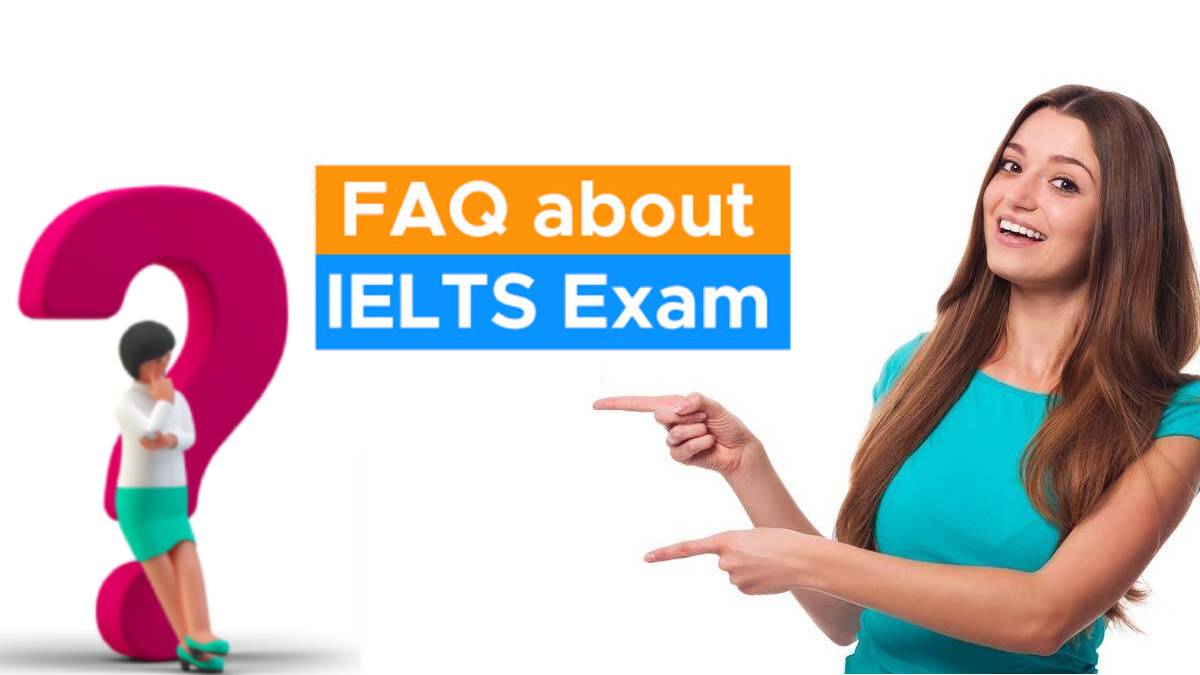IELTS Frequently Asked Questions

What does IELTS stand for and what does it mean?
The International English Language Testing System (IELTS) is the most widely used English language competency exam in the world for international migration and higher education, with over 2.9 million exams administered in the last year. (according to the British Council)
Also read; What is an IELTS Mock Test?
Is the IELTS test difficult?
IELTS test doesn’t feel difficult if you are proficient in English and are familiar with the test format. It can feel challenging and difficult for some especially who are less exposed to English and are not prepared for the test. However, with enough preparation and practice, many people can secure their targeted scores.
How long does it take to prepare for the IELTS test?
- The IELTS test preparation time can vary depending on how good you are at English, how familiar you are about the test, and the score you want to get. Some people might need a few weeks to several months to prepare, while others might be ready in just a week. Experts usually recommend preparing for about 6-8 weeks allowing you enough time to learn about the test and practice enough.
How many questions are there in different sections of IELTS?
The IELTS test has four main sections: Listening, Reading, Writing, and Speaking.
- Listening: This section has 40 questions; divided into four parts. You will hear different recordings and have to answer questions related to what you hear in each recording.
- Reading: This section also has 40 questions which consists of three passages, and you will have to answer questions based on these passages.
- Writing: This section has 2 tasks. In Task 1, you have to talk about a graph, table, chart, or diagram in at least 150 words and in Task 2, you need to write an essay about a viewpoint, argument, or issue in at least 250 words.
- Speaking: You will have a one-on-one interview with an examiner which consists of three parts. Part 1 is an introduction and interview. Part 2 is an individual long-turn where you speak for 1-2 minutes on a particular topic. Part 3 is an extended discussion related to topic in Part 2.
Also read; TOEFL vs IELTS | Which One Should You Choose?
What are the different IELTS reading passages and question types?
In the IELTS reading test, you’ll answer questions by reading passages like stories, articles, or essays. The questions are varied:
- Multiple Choice: You should choose the best answer from a list of choices.
- Matching Headings: You should match headings to the paragraphs.
- Matching Information: You should match information to sections in the passage.
- True/False/Not Given, Yes/No/ Not Given: You should decide if statements are true, false, or not given OR yes, no, not given.
- Sentence /Summary Completion/ Fill in the blanks: You should complete sentences with missing words.
- Short Answer Questions: You should answer questions in up to THREE words depending on the Rubrics given in the question.
How is the IELTS exam scored?
The IELTS test checks your English in four ways: Listening, Reading, Writing, and Speaking. Each part gives you a score in the range of 1 to 9.
- Listening and Reading: You get one point for each question out of 40 questions you answer right. These points are then converted to the 9-band scale.
- Writing: This part looks at how well you answer questions and are evaluated on four criteria: Task Achievement/Response, Coherence and Cohesion, Lexical Resource, Grammatical Range and Accuracy. All these bits are mixed together to give you a final score.
- Speaking: Here, they listen to how well you talk, the words you use, how you put sentences together, and how clear your pronunciation is. Fluency and Coherence, Lexical Resource, Grammatical Range and Accuracy, Pronunciation are the marking criteria.
In the end, the overall band score is the average of the four section scores, rounded to the nearest whole or half band.
Also read: 5 Pro Tips to Achieve High Scores in IELTS
What are the different modules of the IELTS test?
The IELTS test has two modules: Academic and General Training.
- Academic: This module is for those who are heading for higher education or work in a profession that requires English. It focuses on academic language skills and assesses if you are ready to study or work in a setting where English is the main language.
- General Training: This module is for the individuals who are planning to pursue secondary education, gain work experience or participate in training programs in English-speaking countries. Australia, Canada, New Zealand, and the UK uses this IELTS test module for migration purpose. The General Training module focuses on everyday language and skills needed for social and workplace contexts.
What is the difference between IELTS Academic and IELTS General Training?
The major difference between IELTS Academic and IELTS General Training lies in the applicant’s intent to use those scores. If the applicant considers using the score to get entry to the University, he/she has to take Academic IELTS.
However, IELTS General Training is generally used for migration purposes. It mostly focuses on evaluating an individual’s ability, self-assurance, and comfort level while speaking English in everyday contexts that they are likely to come across in an environment where English is their first language.
However, the purpose of the IELTS Academic test is to determine if a candidate is prepared and is capable of using English as a study language. The Speaking and Listening sections are the same in both modules. These assessments have different components for writing and reading, though.
Also read: Common IELTS Writing Mistakes and How to Avoid Them
Can I use a dictionary during the IELTS test?
In general, using a dictionary is prohibited when taking the IELTS exam. This is so because the exam’s purpose is to assess a candidate’s aptitude for understanding and using English naturally.
Should I guess answers if I am unsure in the IELTS test?
Yes, definitely. Since the IELTS exam does not have a penalty for wrong scoring, it is advisable that in case of uncertainty, the test taker should guess the answer. The guesswork is especially applicable to listening and reading sections.
How soon can I reappear for the IELTS test if I am dissatisfied with my results?
Retaking the IELTS is not subjected to any limitations. As soon as you think you are prepared, you can sign up for an exam. It is, however, highly advised that you study further before retaking the test. Test takers can make the most use of free IELTS practice resources from official websites.
What is the difference between computer-delivered IELTS and paper-based IELTS?
The major difference between CD IELTS and PB IELTS lies in test day experience, costs, and availability of test results.
While face-to-face interviews with an examiner remain the same for the speaking section in both formats, the other three sections (Reading, Listening, and Writing) are completed using a computer in CD IELTS, yet, they are completed using papers in PB IELTS. The PB IELTS cost NPR. 29,500 while CD IELTS cost NPR. 27,100.
The result will be available 3-5 days after taking the Computer-Delivered test while it takes 13 days to obtain the score in paper-based IELTS.
How can I prepare for the IELTS test?
To prepare for IELTS test, taking practice tests can greatly help you to identify your weaknesses and strengths, and understand the test format as well.
However, improving your scores is more than only taking practice tests. You can immerse yourself in practising English language in your daily life as well. Read things that you find interesting, write a diary daily, talk to online community or people in English, preferably native speakers.
Lastly, by joining a reputed institution, you can receive necessary help and guidance to put yourself on the progressive path to improve your English and hence, succeed in your IELTS test.
How can I manage my time during the IELTS test?
Learning about the test format can greatly help you develop an idea of time you need to allocate for the questions. This way, you can develop a strategy to allocate particular amount of time to different sections.
You can also use practice tests as a tool to develop this skill. Evaluate your performance in each practice test and improve your game plan to ace the test within the stipulated time.
Also read; 7 Tips to Improve Your IELTS Score in 2024
What is a good score on the IELTS test?
Generally, universities prefer an IELTS score of 6.0 or above for undergraduate admissions and 6.5 or above for graduate admissions preferably with a minimum section score of 6.0. It is also important to note that some programs may have specific requirement which may be above what many programs generally ask for.
Is there a pass or fail in the IELTS test?
The IELTS test has no pass or fail. Instead, candidates are graded according to how they perform in four areas (Listening, Reading, Writing, and Speaking). Each section is marked from 1-9 bands. These scores are averaged to arrive at an overall band score.
Whether you meet the requirements of a particular institution or organization depends on the score level they set. In case you do not reach the required bar, you can retake it after some preparation by paying the registration fee again.
How often is the IELTS exam conducted?
The IELTS exam, which is globally accepted as a measure of English proficiency takes place 48 times a year with test dates available mostly four times every month. Nepal also offers IELTS test dates four times each month, usually conducted on Saturdays or Thursdays, thus allowing students to plan their time and have greater convenience.
Moreover, CD IELTS testing offers several dates and time slots in a single day and one may have his/her results within 3-5 days, unlike paper-based exams where results take 2 weeks to be published. However, the availability of examination days could differ depending on the preferred form of assessment (Academic/General Training) plus module.
What documents do I need for IELTS registration?
Usually, a valid PASSPORT is a must for IELTS registration which must be carried along for the registration and on test day as a proof that you are who you claim to be. Besides, there may also be a need for parental consent if such candidates happen to be below 18 years of age.
An invalid passport will not be accepted, so one must confirm that their identification document has not expired. You have to use a valid passport instead of other identifications while applying for a test. It is unacceptable to show student IDs or driving licenses etcetera. Notably, those without genuine ID (Passport) cannot take part in the examination.
Can I take the IELTS exam from home?
Test takers have to take the IELTS exam from the specific official centers allotted for exams abiding by procedural specifications necessary for the IELTS examination.
Both the computer-based mode and paper-based mode at a test center are the same; the only difference is that paper-based is written on paper, and computer-based includes typing on a computer. Before going for any specific mode, check specific requirements and guidelines so that you do not experience any difficulties during the testing.
How long is the total IELTS duration, and what is the exam pattern?
The IELTS test duration is 2 hours and 40 minutes, including 10 minutes in the listening section for transferring your answers to the answer sheet. Yet, only 2- minute time is allotted on CD ielts (Listening Module) for corrections if any.
Previously, the test pattern used to start with Listening followed by Reading and Writing, but after the recent update, the test starts with the Writing followed by the Listening and the Reading section.
For the paper-based exam, you will need to take the Listening, Reading, and Writing sections on the same day, while the Speaking section will be scheduled for another day probably within a week prior or after the actual test day. However, regarding a computer-based test, you are going to take all four sections (L, R, W, and S) on the same day.


